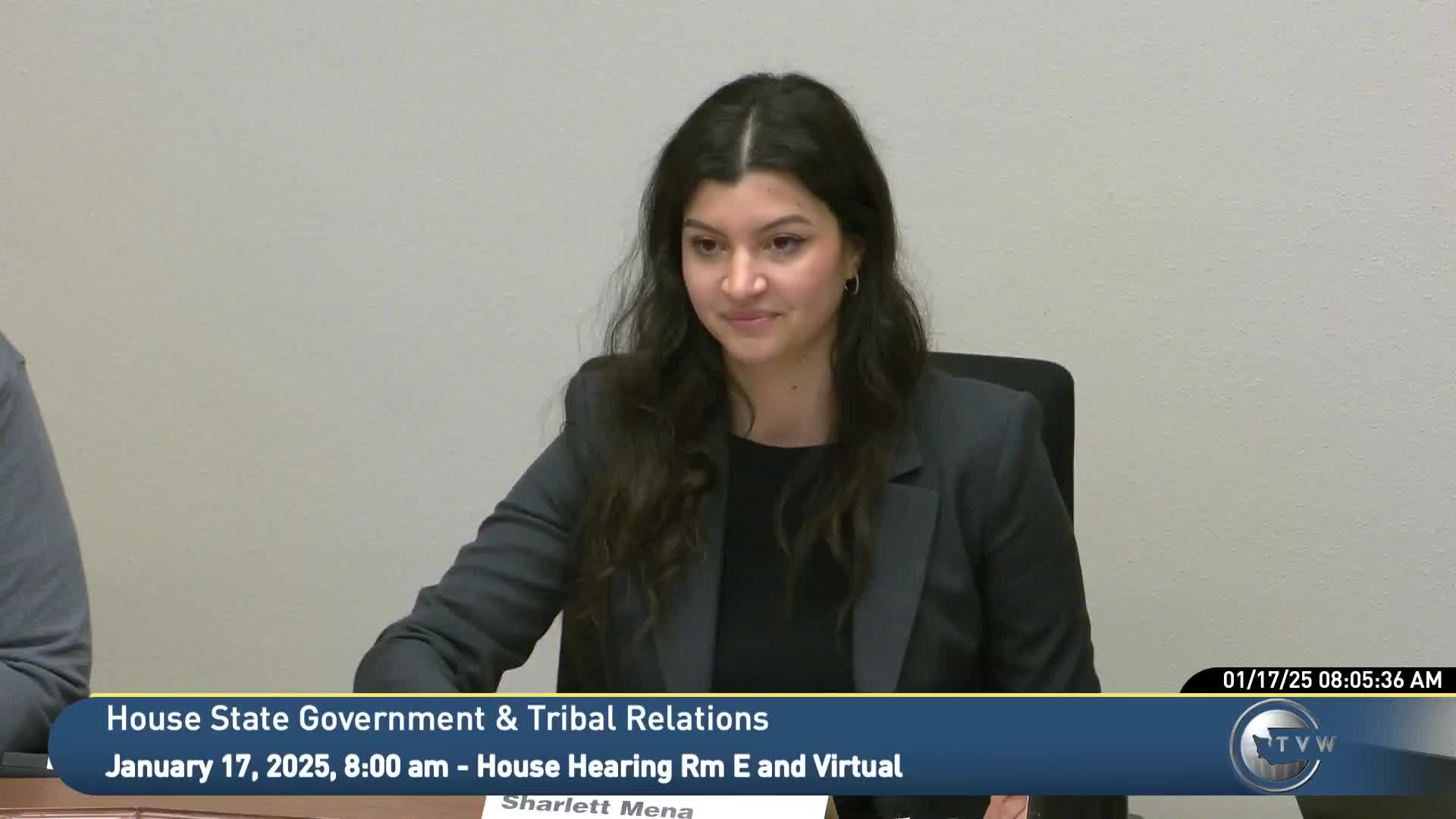Gambling Commission briefs committee on regulation, enforcement and tribal compacts
Get AI-powered insights, summaries, and transcripts
Subscribe
Summary
The Washington Gambling Commission summarized its authority, funding, regulated activities, enforcement priorities and tribal-compact process for the State Government & Tribal Relations Committee, and answered lawmakers’ questions on raffles, taxes and animal-fighting investigations.
Tina Griffin, executive director of the Washington Gambling Commission, told the State Government & Tribal Relations Committee that the agency’s “mission is to protect the public by ensuring that gambling is legal and honest.” Griffin delivered a broad overview of the Commission’s work, funding, licensed activities and enforcement priorities during a work session on gambling regulation.
The briefing described the Commission’s statutory authority under the state Gambling Act (RCW 9.46), its limited law‑enforcement role and its oversight of charitable and commercial gambling, equipment licensing and tribal‑state gaming compacts. Griffin said the commission has five citizen commissioners appointed by the governor for six‑year terms, noted a recent resignation that left one vacancy, and explained the Commission’s reliance on license fees rather than general‑fund appropriations.
Why it matters: The Commission regulates activities from charitable raffles and bingo to tribal class‑III gaming and works with federal, state and local partners on investigations. Committee members pressed staff on how the rules apply to nonprofits, the Commission’s funding and recent enforcement trends, matters that affect municipalities, nonprofits and tribal partners across Washington.
Griffin summarized key regulatory points cited in the Gambling Act: licensed and unlicensed charitable nonprofits may run social card games, punch‑board pull‑tabs, bingo, amusement games and raffles if they meet the statute’s nonprofit definition; raffle tickets must be physical and individually numbered and may not exceed $100 per ticket under standard raffles; nonprofits may run limited unlicensed raffles under receipt caps; and enhanced raffles (authorized by the legislature in 2013) are limited to organizations serving individuals with intellectual disabilities and require Commission approval.
She provided numeric context: the Commission licenses manufacturers, distributors and individuals who operate gambling activities and conducts more than 20,000 background checks annually. Funding is primarily fee‑based: about 75% of the Commission’s revenue comes from licensees and roughly 25% from tribal cost reimbursements, Griffin said. She described a multiyear fund balance set aside to replace legacy IT systems and said the Commission expects to launch its new system next year.
Griffin also described enforcement priorities. The Commission investigates illegal gambling and related crimes—including cheating, use or possession of illegal devices, conducting activities without a license, transmitting gambling information over the internet, theft of gambling funds, money‑laundering and structuring. She noted that card rooms and casinos are treated as money‑service businesses under federal Bank Secrecy Act rules (Title 31) and must comply with anti‑money‑laundering requirements. Griffin said thefts from patrons—including armed robberies and parking‑lot followings—have increased in recent years and that the Commission partners with local, state and federal law enforcement.
The presentation covered tribal gaming: Griffin said Washington has 29 federally recognized tribes with tribal‑state gaming compacts; 23 tribes operate 29 gaming facilities. She outlined the compact amendment process under state statute, including notice to legislative committee chairs, required public hearings, Commission hearings and the Department of the Interior review before amendments take effect upon federal‑register filing.
On problem gambling and player protections, the Commission noted a statewide self‑exclusion program implemented in May 2022 that allows individuals to block themselves from House‑bank card rooms with one statewide form; about 1,100 individuals were registered at the time of the briefing. The Commission also produces informational signage containing a toll‑free problem‑gambling helpline in partnership with Evergreen Council on Problem Gambling.
Lawmakers asked for clarifications. Representative Farvar asked why enhanced raffles are limited to organizations serving people with developmental disabilities; Griffin replied that the restriction is specified in the 2013 statute. Representative Chase asked about taxation and whether net gambling receipts are taxed; Griffin said local jurisdictions may levy taxes under the Gambling Act (citing RCW 9.46.110 for local taxing authority) and that the Department of Revenue applies business and occupation taxes and other categories, but said the Commission itself does not receive those tax receipts.
The session closed after members asked about animal‑fighting investigations. Griffin said the Commission supports pending legislation to increase penalties for animal fighting, described working on task forces and search‑warrant investigations, and noted coordination with animal control and other agencies to secure animal welfare during enforcement actions.
The briefing was followed by questions from committee members and a recess for the executive session.
